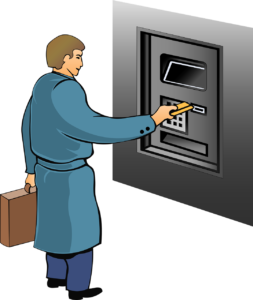insurance company Are you sick of all the trouble and money it takes to fix your car after an accident? Have you ever thought if there’s a way to keep from having to pay for repairs at all? Well, what if I told you that your insurance company could help you not fix your car? You’re right! We’ll talk about why some people don’t fix their cars, what could happen if they don’t, how to file a claim with your insurance company, and what to do if they say no. So sit back, relax, and let’s take a look at how insurance companies can be used for more than just fixes.
Can I use my car insurance to avoid fixing my car?
Can I use my car insurance to avoid fixing my car? Even though it seems counterintuitive, it can be a good choice in some cases. Different things make some people decide not to fix their cars. One usual reason is that the cost of repairs is more than what the car is worth. In this case, you might be better off taking the money from your insurance company and using it to buy a new car instead.
Some people don’t fix their cars because they plan to sell or trade them in soon. Spending money on fixes that won’t change the resale value much might not be a good idea.
But before you decide whether or not to fix your car, you should think about what might happen if you don’t. If you don’t fix your car after an accident and keep driving it, there’s a chance that any more accidents will cause more damage and make you more responsible.
Also, don’t forget that if you don’t fix your car, it could affect your insurance coverage. For safety reasons, insurance companies usually require that cars with a lot of damage be fixed quickly. If you don’t meet this condition, they may deny any future claims you make about that incident.
When you want to use your insurance company for something other than fixes, you must file a claim. To report damage to your insurance company even if you don’t plan to fix it right away:
1) Call your insurance company. Let them know about the crash and why you don’t want to fix your car right now.
2) Give the Right Paperwork: Be ready with all the information you need about what happened, including pictures of the damage.
3) Help out as much as you can. When your insurance company asks you questions, answer them honestly and correctly.
Remember, though, that just because you made a claim doesn’t mean your insurance company will pay. They will look at each case on its own, based on the insurance terms and the reasons why the policyholder decided not to fix the problem.
So, the next time you’re not sure if you should fix your car after an accident, think about the choices.
Why wouldn’t I want my car to be fixed?
After an accident, you might not want to fix your car for a number of reasons. First of all, price can be a big issue. Depending on how bad the harm is, repairs can cost a lot of money. If you are having trouble paying your bills or don’t have enough insurance, the idea of spending a lot of money may not be appealing.
Another reason could be that the damage is only on the outside and doesn’t affect how your car works or how safe it is. When this happens, you might decide that it’s not worth spending money on fixes when you have more important things to pay for.
Also, if you want to sell or trade in your car soon, you might decide not to fix small problems because they might not affect its worth much. This way, you can save time and money by not having to fix things that don’t need to be fixed.
Also, some people just prefer to live with flaws because they don’t want to deal with repair shops or the hassle of making insurance claims.
No matter why you don’t want to fix your car, it’s important to think about all the possible outcomes before making a choice.
What will happen if I don’t get my car fixed?
Driving around in a broken car might not seem like a big deal, but it can have major consequences. Putting off fixes can cause bigger problems in the future and could put your safety at risk.
If you don’t get your car fixed, it might not work as well. Damage to important parts like the brakes, suspension, or steering can make it hard to drive the car correctly. This makes crashes more likely and puts you and other people on the road in danger.
Also, putting off car fixes could cause your car to break down even more. If you ignore a small problem that could have been quickly fixed, it may get worse and become a bigger issue. Not only will this cost you more to fix in the future, but it could also lower the value of your car if you ever decide to sell it.
Possible legal trouble is another effect. In some places, it’s against the law to drive with broken lights or a cracked windshield. This can lead to fines or even a license suspension.
When choosing whether or not to fix your car, you should think about what it means for your insurance. A lot of the time, insurance companies won’t cover cars that aren’t in good shape. If you don’t take care of needed fixes right away, it could affect future claims and your ability to get coverage.
In the end,…
It’s important not to undervalue how important it is to fix your car right away after an accident or damage. When fixes are put off, there are risks to safety, costs go up, and there could be legal problems or problems with insurance. Fixing things quickly keeps you safe on the road and gives you peace of mind about your finances in case of an accident.
How do I tell my insurance company that I want to make a claim?
Filing a claim with your insurance company is easy and can help you get the money you need to fix your car. Here is a step-by-step guide on how to file a claim:
1. Call your insurance company: As soon as possible after the accident, you should call your insurance company. They will help you through the process and give you any forms or papers you need.
2. Get information. Before you call your insurance company, make sure you have all the important information about the accident, such as the date, time, location, and an account of what happened. It’s also helpful to have any proof, like police records or statements from witnesses.
3. Give accurate information: When you talk to your insurance agent about the event, be honest and give accurate information. This means giving information about any damage to your car and any accidents.
4. Do what they say. Your insurance company will probably ask for certain paperwork or proof connected to the accident. Make sure to do what they ask of you quickly and completely.
5. Keep records: During the claims process, it’s important to keep detailed records of all contact with your insurance company, including dates, times, names of representatives spoken with, and summaries of conversations.
Don’t forget that each insurance company has its own way of making claims, so be sure to follow their instructions closely.
What happens if my insurance company says no?
What happens if my insurance company says no? It can be frustrating and upsetting to have a claim turned down. After all, you pay for insurance to help you out when you need it. But it’s important to keep in mind that insurance companies have rules and guidelines they use to decide whether or not to pay a claim.
If your claim is turned down, the first thing to do is figure out why. Insurance companies can turn down claims for many different reasons, like not having enough coverage, policy limits, or not having enough proof. It’s important to read your insurer’s rejection letter carefully to find out exactly why they turned down your claim.
Once you know why you were turned down, you might want to think about appealing the decision. Most of the time, this means getting more evidence or giving more information to back up your case. You might also find it helpful to talk to an attorney who deals in insurance claims.
Remember that each insurance company has its own way of handling appeals and deadlines, so make sure to follow their directions and deadlines carefully. Keep track of everything you say to your insurance company during this process.
In some situations where an appeal doesn’t go well, you might be able to try mediation or arbitration with the help of an independent third party.
If your insurance company turns down your claim, it can feel like a loss, but that doesn’t mean you’re out of options. Exploring all of your options and knowing what your rights are will help you get through this tough situation successfully.
In the end,
Even though it might be tempting to use your insurance company as an excuse not to fix your car, there are important things to think about. If you don’t fix your car, it could endanger your safety or get you in trouble with the law. Before making a choice, it’s important to think about the pros and cons.
If you need to file a claim with your insurance company, make sure you do everything right and give them all the paperwork they need. Keep in mind that insurance companies use their own rules to decide if they will pay for the losses or not.
But if your insurance company turns down your claim, don’t give up. There are still choices for you. Talking to an attorney who specializes in insurance cases could help you figure out what to do next.
Remember that calling your insurance company to avoid making repairs should only be done as a last option and only after you’ve carefully thought through all the possible outcomes. When it comes to keeping and fixing our cars, safety should always be the most important thing.
So, the next time you have to decide if you can use your insurance company as an excuse not to fix your car, think twice before doing that. Taking care of our cars in a sensible way isn’t just about saving money; it’s also about making sure we’re safe and healthy on the road.














